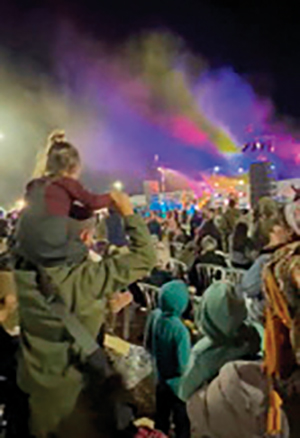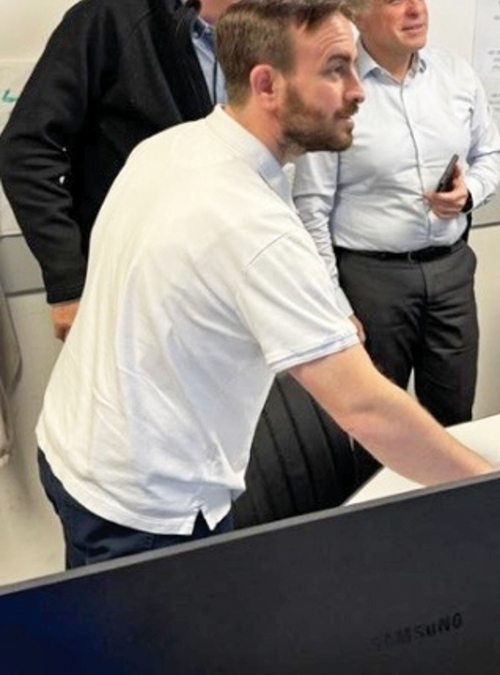
Yoni Goodman, a 40-year-old father of four and resident of New Rochelle, left his work and family for four days to travel to Israel to do what he could for the people. After much planning, he put together a trip for himself and three friends, with the goal of bringing assistance, relief, and hopefully even joy to those most affected by the war.
One of the main goals of the trip was to sponsor an Ishay Ribo concert for an army base. Goodman had seen online that entertainers are putting their profits and schedules on hold in order to help the homefront. He saw that Ishay Ribo was going from base to base, entertaining, and “going completely offline in his life to bring soldiers moments of joy.” But he needed sponsors. A friend of Goodman’s from Bnei Akiva was able to connect him to Ishay Ribo’s manager. Ribo’s manager told Goodman that a base in the South had requested a concert but had no sponsor. So, Goodman committed to sponsoring the concert and asked his three friends to contribute whatever they could.
Goodman decided to sponsor a barbecue as well. He later found out that this evening would be taking place on “family day”—a day when the families of the soldiers can come to visit them on their base after months of separation.

With this concert set as the highlight of his trip, Goodman set out to Israel. Upon arriving at Ben-Gurion airport, he was shocked. “When I landed and saw the airport—it was empty! You think everyone you know is going to Israel, but everyone you know isn’t a lot of people, and the airport was basically closed. The tone was set as I went through the airport terminal: These are not normal times.”
Because Goodman and his friends were sponsoring a concert, Ribo’s manager told them that they could attend another Ishay Ribo concert during their trip. This concert would be taking place several nights earlier in Jerusalem for 700 wives of active, injured, or fallen soldiers.
Goodman explained that the concert for the 700 wives was an extremely powerful experience. “You could feel the emotion in the room. There was a mix of every emotion—anxiety, fear, support, camaraderie, exhilaration, sadness, grief, and joy. The most palpable and clear manifestation of emotion was the support the women had for each other. You could see them almost physically holding one another up.” Sivan Rahav Meir, a famous Israeli journalist, spoke before Ribo performed. She gave a message of inspiration and support, calling the women “leviot”—lionesses. Then, during the concert, Ribo paused at one point for the women to watch pre-recorded messages from some of their husbands at the front, on the screen behind him.
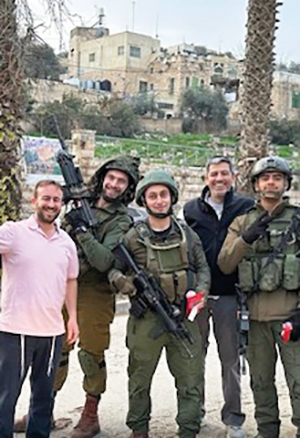
“We realized in that room that there is more than one battle going on: There’s the physical battle at the front lines, and then a whole other battle that the women are fighting to keep everyone all right back home. In the media, everyone focuses on death tolls and the battle in Gaza, but what doesn’t make the front page is that a kid starts crying in class because he hasn’t seen his father in months. It’s a huge part of the war that doesn’t get attention,” said Goodman.
Another of Goodman’s initiatives was fundraising for additional and improved security measures for a major Israeli settlement in the Shomron. An acquaintance had reached out to Goodman a few months ago, saying that this settlement needed more security, so Goodman spent time before his trip raising money for this project. He explained, “It’s a place I feel very connected to because my cousins live there. I grew up visiting them, breathing the air and walking the streets.”
On his trip, Goodman toured the settlement and the mayor showed him and his friends the enhanced camera systems and radars that had been purchased. “It was fulfilling to see that we helped,” said Goodman.
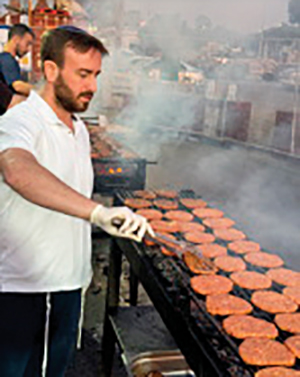
The next day, Goodman and his cohorts went down South to bear witness to some sites of the tragedies from October 7. They then proceeded to the army base for the barbecue and concert for the soldiers and their families. “You read about morale—in companies, in homes, in wars. Until I was there, I had no clue what it really meant. There were five of us in a car with a guide and driver. We wanted to make sure we brought positivity to as many soldiers as we could, so we stopped at every rest station down south, where we saw buses of soldiers. Each time we wondered: Are they going in? Or coming out? We bought falafels and pizzas and gave out cigarettes, and high-fived them. At first we thought maybe that’s shallow, but at each rest stop, when the soldiers asked us why we were there, and we answered ‘to support you,’ they loved it. They shared stories and photos, and we realized that our visits were appreciated. We knew that our sacrifice wasn’t 1/1000th of what they were doing, so we hadn’t been sure if our presence would be silly or annoying to them. But it did boost their morale. They knew and we knew that we were useless side-shows relative to the actual battle. But we were there instead of on our couches in Westchester, trying to help in our small way.”
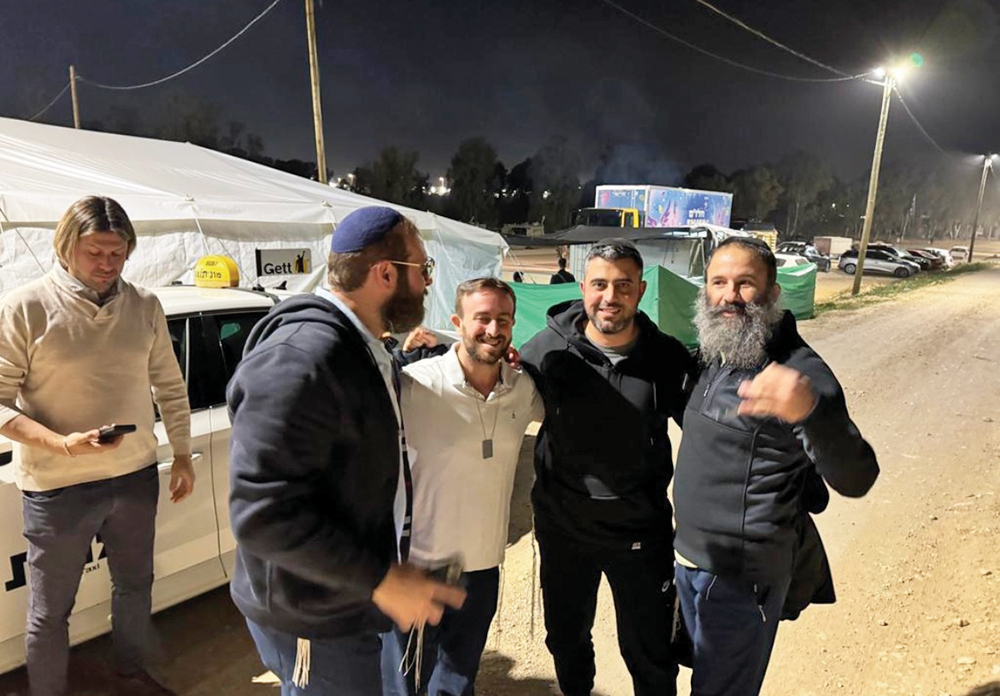
When the group arrived at the base near Be’er Sheva, they were thrilled to witness “family day.” They saw soldiers being reunited with their families. “There was a celebratory environment and atmosphere, but there was also a weight of seriousness that you could feel,” said Goodman. “All I was thinking was that these were giborim [heroes]: from the soldiers, to the wives to the kids. I was struck with the realization that anything we have ever known as hardship is trivial compared to what these people are going through.”
Goodman’s main takeaway from the trip is that “there are two types of Jews in the world: Israeli Jews and everyone else. The Israeli Jews are on the front lines of the battle that will greatly affect all of us, and the sacrifices they are making for us are incomprehensible. We all need to fully recognize and appreciate that sacrifice.”
